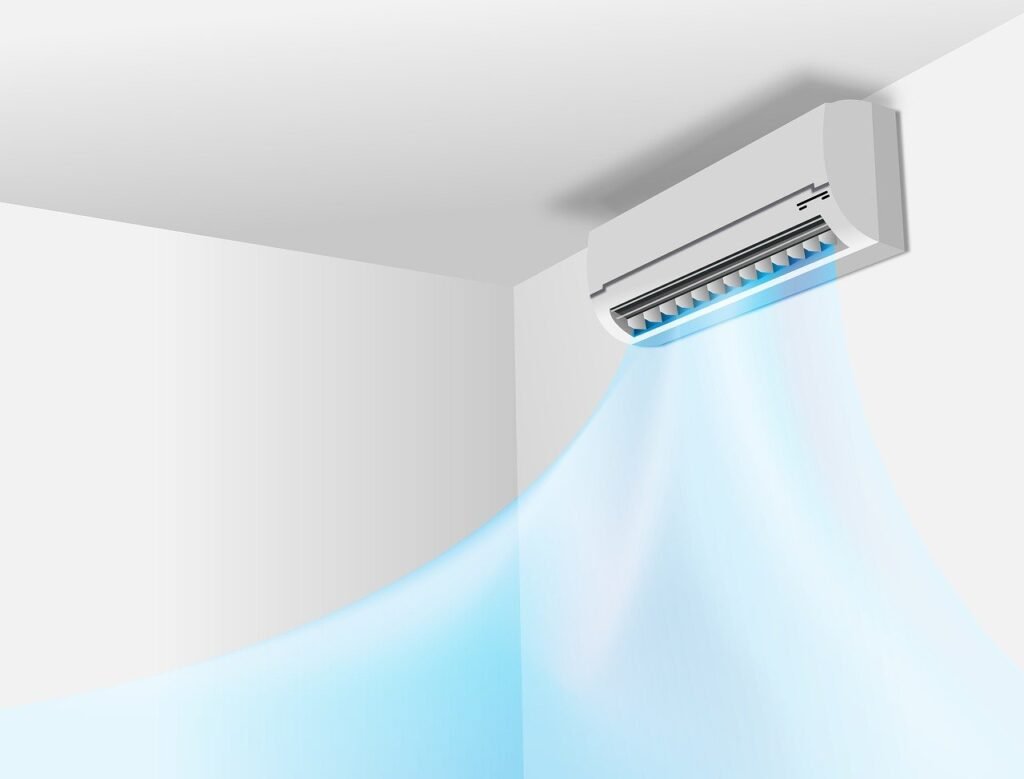
Introduction to Efficient Home Cooling
Efficient home cooling is a critical aspect of modern living, especially as global temperatures continue to rise. Utilizing energy-efficient air conditioners can significantly impact not just your comfort but also your financial and environmental well-being. By opting for air conditioners that prioritize energy efficiency, homeowners can enjoy reduced energy bills, thus making cooling your home more affordable. Additionally, these units contribute to a smaller carbon footprint, aligning with the growing need for sustainable living.
Energy-efficient air conditioners are designed to use less electricity while providing optimal cooling performance. This dual benefit ensures that homes remain comfortable during the hottest months without causing a spike in energy consumption. The savings on energy costs can be substantial over time, making energy-efficient models a wise investment for any household.
Another crucial benefit of energy-efficient air conditioners is their positive environmental impact. Reduced energy use means that fewer fossil fuels are burned to generate electricity, thereby decreasing greenhouse gas emissions. This reduction plays a significant role in combating climate change, making energy-efficient cooling solutions a responsible choice for environmentally-conscious consumers.
To evaluate the efficiency of air conditioners, the Seasonal Energy Efficiency Ratio (SEER) rating is commonly used. SEER ratings measure the cooling output of an air conditioner over a typical cooling season, divided by the total electric energy input during the same period. Higher SEER ratings indicate more efficient air conditioning units. When selecting an air conditioner, it is advisable to look for models with higher SEER ratings, as they offer better energy efficiency and lower operating costs.
Understanding the importance of efficient home cooling and the role of SEER ratings can guide homeowners in making informed decisions. By prioritizing energy efficiency, one can enjoy the dual benefits of cost savings and environmental stewardship, all while maintaining a comfortable living environment.
Top Air Conditioner Models of 2024
Choosing the right air conditioner for your home is essential for ensuring comfort and energy efficiency. In 2024, several models stand out due to their advanced features, cooling capacity, and user-friendly design. This section provides an overview of the top air conditioner models available this year, including insights into their key features, energy efficiency, smart home compatibility, noise levels, and customer reviews.
1. LG Dual Inverter Smart Air Conditioner.
LG 1.5 Ton 5 Star DUAL Inverter Split AC (Copper, AI Convertible 6-in-1 Cooling, 4 Way Air Swing, HD Filter with Anti-Virus Protection, 2024 Model, TS-Q19YNZE1, White)

2.Lloyd
Lloyd 1.5 Ton 5 Star Inverter Split AC (5 in 1 Convertible, 100% Copper, Anti-Viral + PM 2.5 Filter, 2023 Model, White with Chrome Deco Strip, GLS18I5FWBEV)
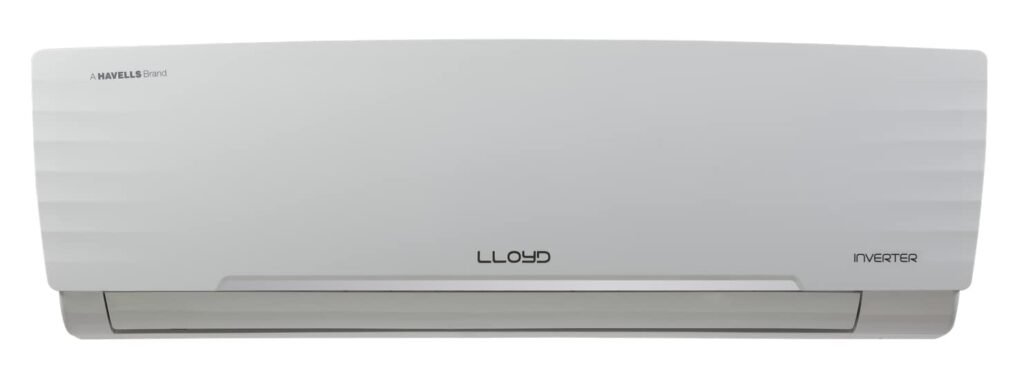
3.Daikin
1.5 Ton 3 Star Inverter Split AC (Copper, PM 2.5 Filter, Triple Display, Dew Clean Technology, Coanda Airflow, 2023 Model, MTKL50U, White)
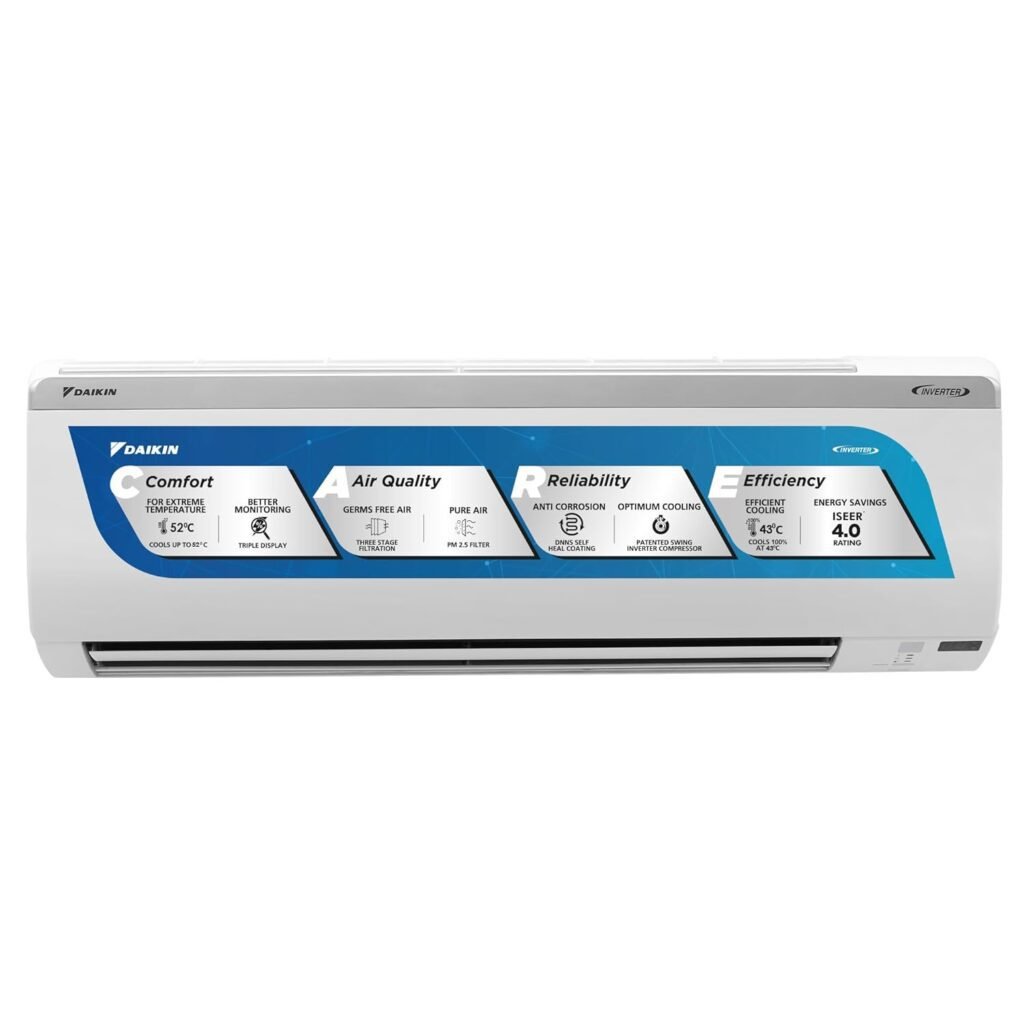
4.Godrej
Godrej1.5 Ton 5 Star, 5-In-1 Convertible Cooling, Inverter Split AC (Copper, Heavy Duty Cooling at 52°C, 2024 Model, AC 1.5T EI 18IINV5R32 WYS, White)
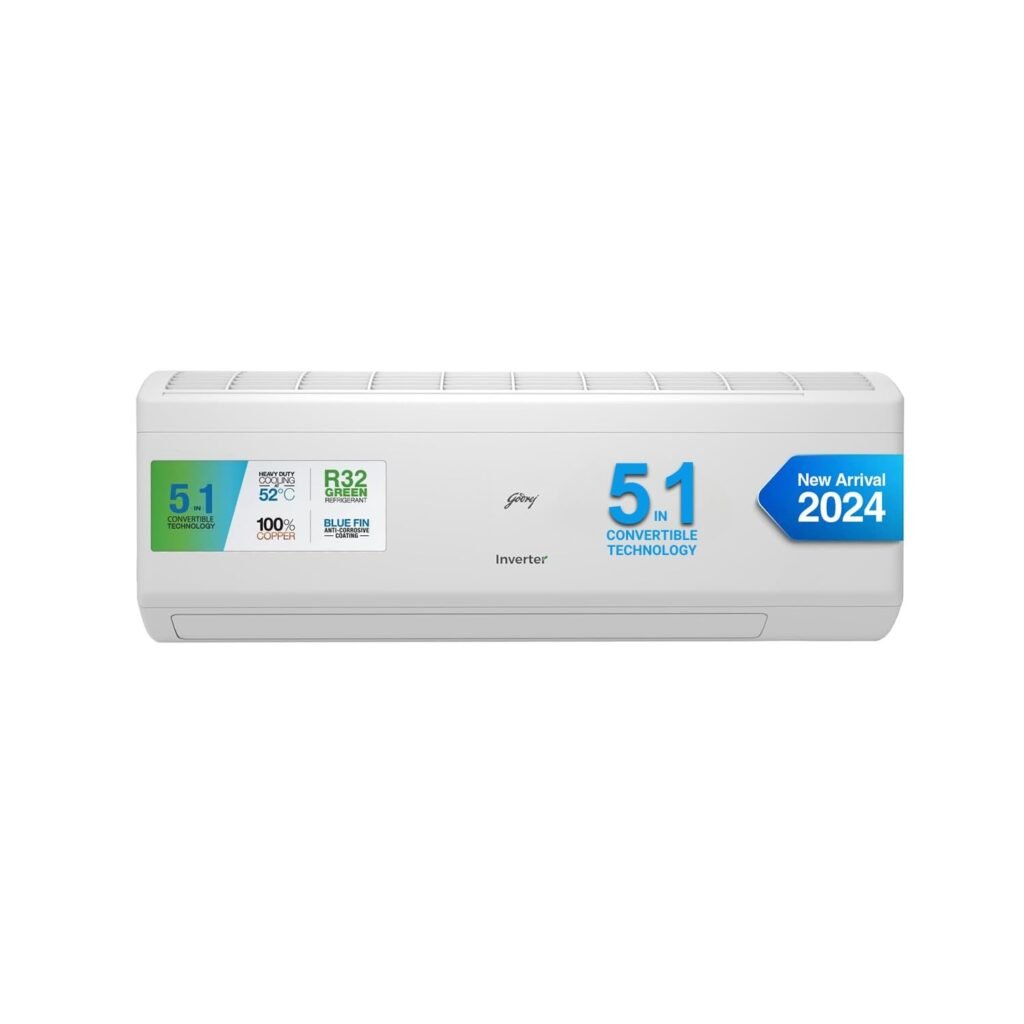
5.Panasonic
Panasonic 1.5 Ton 5 Star Wi-Fi Inverter Smart Split AC (India’s 1st Matter Enabled RAC, Copper Condenser, 7in1 Convertible, True AI, 4 Way Swing, PM 0.1 Filter, CS/CU-NU18ZKY5W, 2024 Model, White)
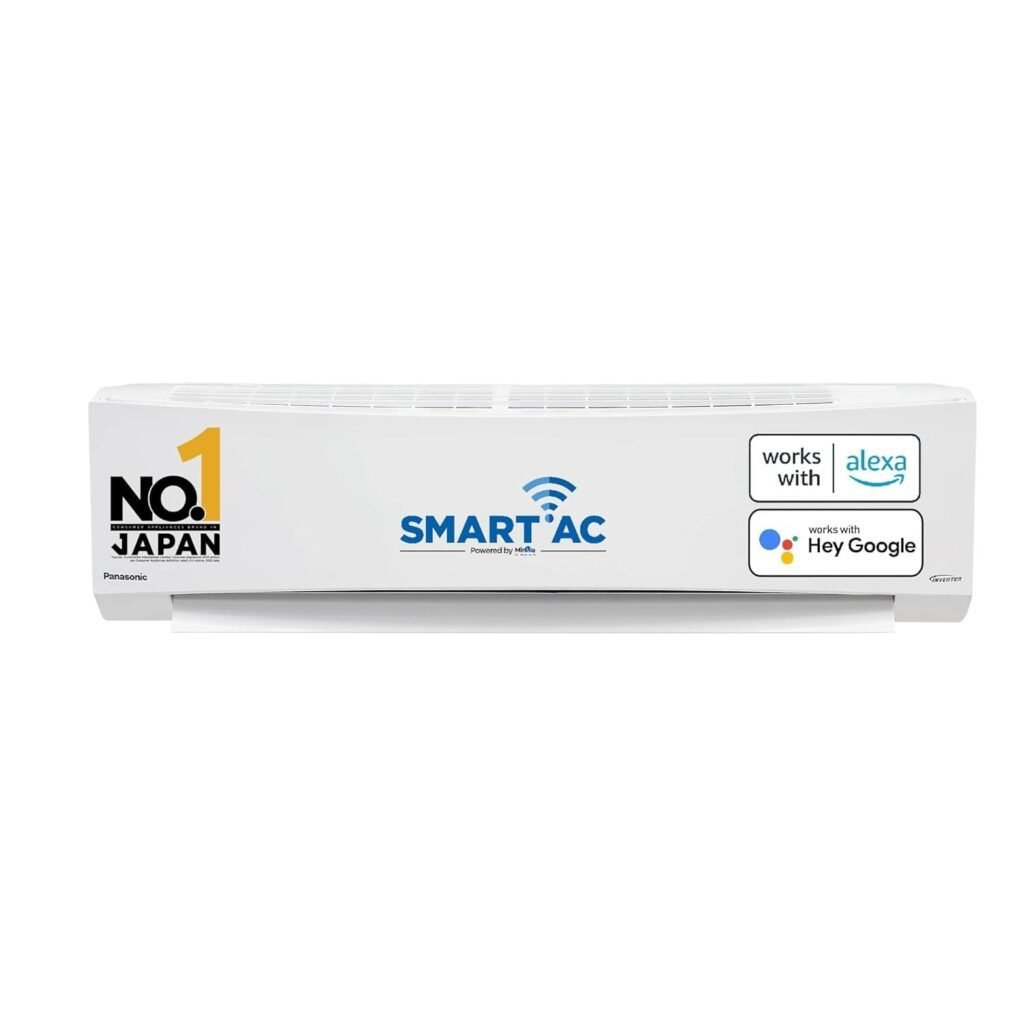
These top air conditioner models of 2024 cater to a variety of needs, whether you require a powerful central system or a flexible portable unit. By considering factors like energy efficiency, smart home compatibility, and customer feedback, you can select an air conditioner that best suits your home cooling requirements.
Factors to Consider When Choosing an Air Conditioner
When selecting an air conditioner for your home, there are several critical factors to consider to ensure efficient and effective cooling. The room size and cooling capacity, measured in British Thermal Units (BTUs), is one of the foremost considerations. An air conditioner with too low a BTU rating will struggle to cool the space, while one with too high a BTU rating will cycle on and off too frequently, leading to inefficiency and increased energy costs. As a general guideline, a room up to 150 square feet may require an air conditioner with 5,000 to 6,000 BTUs, while a room of 450 to 550 square feet might need a unit with 12,000 to 14,000 BTUs.
Energy efficiency is another crucial factor. An air conditioner’s efficiency can be gauged through its Energy Efficiency Ratio (EER) or Seasonal Energy Efficiency Ratio (SEER) ratings. Higher EER or SEER ratings indicate better energy efficiency, which can lead to significant savings on electricity bills. Look for units with an Energy Star certification, which signifies that the appliance meets stringent energy efficiency guidelines set by the U.S. Environmental Protection Agency.
Noise levels also play a significant role in the comfort provided by an air conditioner. Units with lower decibel (dB) ratings operate more quietly, making them ideal for bedrooms or living areas where noise can be a distraction. Typically, portable and window units range between 40 to 60 dB, while central air systems tend to be quieter.
Installation requirements should not be overlooked. Window air conditioners are relatively simple to install, while split systems and central air conditioning units may require professional installation, which can add to the initial cost. Ensure that your chosen system is compatible with your home’s infrastructure.
Additional features, such as smart thermostats and air purifiers, can enhance the functionality and convenience of your air conditioner. Smart thermostats allow for remote control and scheduling, optimizing energy use, while integrated air purifiers improve indoor air quality by filtering out pollutants and allergens.
By considering these factors—room size and BTUs, energy efficiency, noise levels, installation requirements, and additional features—you can make an informed decision and select the best air conditioner to meet your home cooling needs in 2024.
Maintenance Tips for Optimal Performance
Ensuring that your air conditioner operates efficiently throughout its lifespan requires diligent maintenance. A crucial aspect of this is the regular cleaning of filters. Air filters can accumulate dust and debris over time, which can obstruct airflow and reduce the cooling efficiency of the unit. It is recommended to clean or replace the filters every one to two months, especially during peak usage seasons.
Another critical maintenance task is checking and sealing ducts. Leaky ducts can lead to significant energy losses, making your air conditioner work harder to cool your home. Inspect the ductwork for any visible leaks or damages and seal them with appropriate materials to ensure an airtight system. This can significantly enhance the overall efficiency of your air conditioning system.
Scheduling professional maintenance at least once a year is also essential. Professional technicians can perform a thorough inspection and tune-up of your unit, including checking refrigerant levels, inspecting the condenser coils, and ensuring that all components are functioning correctly. This preventive measure can identify potential issues early, preventing costly repairs and extending the lifespan of your air conditioner.
Monitoring for signs of wear and tear is equally important. Pay attention to any unusual noises, reduced cooling performance, or increased energy bills, as these could indicate underlying problems. Addressing these issues promptly can save you from more extensive damage down the line.
Lastly, seasonal maintenance is vital for optimal performance. Before the onset of summer or winter, ensure your air conditioner is ready for the increased demand. This includes checking the thermostat settings, ensuring the outdoor unit is free of debris, and verifying that the insulation around the ducts is intact.
By following these maintenance tips, you can keep your air conditioner running efficiently, reduce energy consumption, and prolong the life of your unit, ultimately ensuring a comfortable and cost-effective cooling experience in your home.
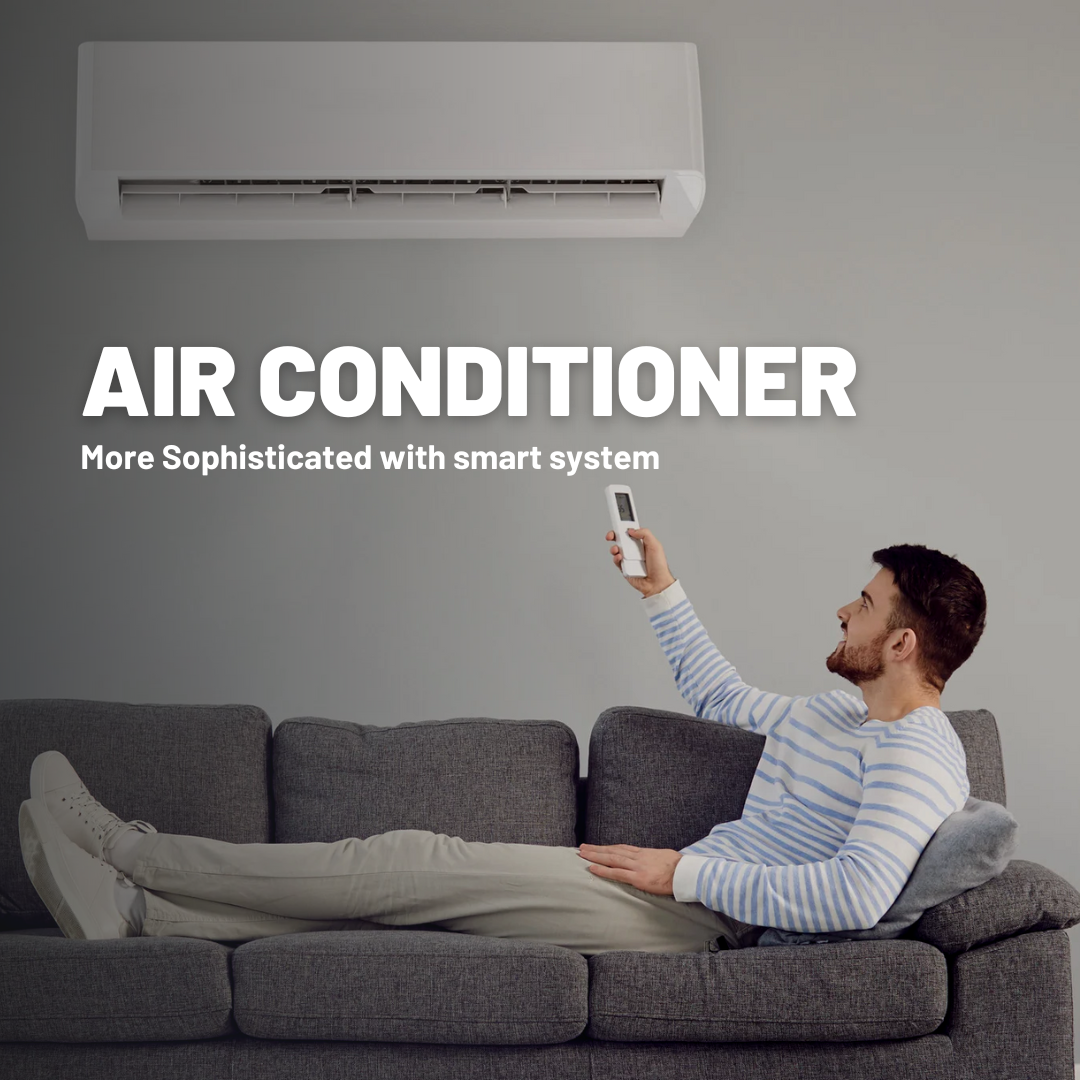

Pingback: The Ultimate Air Conditioner Buying Guide for Summer 2025 - Best Rdn